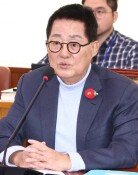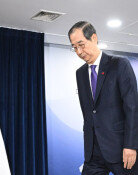Political parties pledge free lunch and nursing fees for the elderly
Political parties pledge free lunch and nursing fees for the elderly
Posted February. 08, 2024 07:32,
Updated February. 08, 2024 07:32
The ruling People Power Party issued a policy pledge on Tuesday to provide free lunch to older people at senior centers every day. The gist of this promise is to raise the number of lunch days from three to seven per week in senior centers that currently serve lunch, which account for 40 percent nationwide, and gradually increase the number of lunch-serving senior centers. Apparently, it fights fire with fire by promising two more lunch days as the main opposition Democratic Party of Korea pledged earlier to give senior centers five lunch meals a week with the forthcoming general elections in mind.
Another pledge of the ruling party is to make nursing fees in convalescent hospitals a new benefit item and deduct it from the tax amount to be paid for the year-end tax adjustment. It also overlaps with the main opposition’s first pledge made later last year to incorporate nursing fees as a benefit item into the national health insurance system. Given that the upcoming general elections will be the first time to have a larger number of voters aged 60 and above than those in their 20s and 30s, the parties are hastily making a series of pledges that are not so different from one another to win over the hearts of more than 13.99 million voters in this age bracket.
Arguably, both the ruling and main opposition parties have paid little attention to how to finance their projects tailored to elderly voters. According to the Welfare of Senior Citizens Act, the government and local authorities shall cover the costs of grains and heating and cooling, for which 80 million won is earmarked as of this year. If they serve free lunch for more than 60,000 senior centers across the country, the budget must be increased several times. The political parties do not say a word about their financing plans.
Likewise, their promise to make nursing fees a benefit item would be kept only if more than 15 trillion won were financed annually. What’s worse is that the National Assembly Budget Office projects that the national health insurance system will face a deficit immediately this year and run out of reserve funds starting from 2028. In other words, their words will end up as another empty promise unless reform to the national health insurance system accompanies the incorporation of nursing fees into the framework.
To be sure, there needs to be competition for politicians to make pledges to address old-age poverty and raise their quality of life. After all, the country is bound to take care of 10 million senior citizens very soon. However, they will only cause fiscal difficulties and instigate intergenerational conflicts if they rely on gimmicky and misleading promises, the sole purpose of which is to win over the hearts of elderly voters without feasible financing plans taken into consideration. Similarly, the ruling and opposition parties have made a recklessly bold pledge to increase the basic pension amount, which started from 100,000 won in 2008 and was raised for every election afterward to 400,000 won. It may be up to voters to rule out all the same promises, which are only a stunt.







